Fresh Herbs Supplier Europe – Informing You on the Best 9 Supplier Practices and How to Leverage Them
The business “Fresh Herbs Supplier Europe” like Mulberry Growers, which supplies companies and businesses in the categories of importers of herbs, distributors, and wholesalers, can also supply your business with fresh herbs in the categories of rosemary, basil, sage, tarragon, chives, and thyme in bulk. We have prepared this all-encompassing guide to point you to the areas of focus when selecting a herbs supplier and conducting your herb sales in Europe. We hope to build partnerships or client relationships with buyers that know how to grow their business, hence this guide.
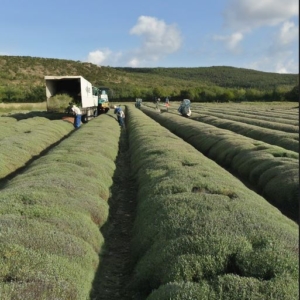
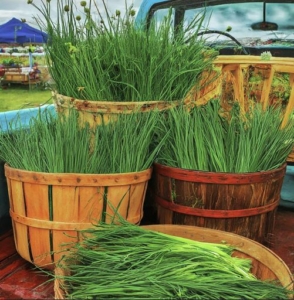
Quality Assurance
Establishing comprehensive quality assurance (QA) protocols is critical for ensuring consistent herb quality in Europe. These protocols should outline detailed procedures for every stage of the supply chain, from initial sourcing to final product delivery. This includes setting clear quality criteria, defining testing methods, and implementing controls to monitor and maintain herb quality. By instituting these protocols, businesses needing the Fresh Herbs Supplier Europe can systematically address potential quality issues, reduce variability, and ensure that their herbs meet both regulatory standards and consumer expectations consistently. Effective QA protocols are foundational for delivering reliable and high-quality herbal products.
Implementing routine inspections is essential for monitoring herb quality throughout the supply chain. In Europe, these inspections should be scheduled at various points, including during storage, processing, and distribution, to ensure adherence to established quality standards. Regular inspections help detect any deviations from quality norms and address potential issues before they affect the final product. By maintaining rigorous inspection routines, businesses needing the Fresh Herbs Supplier Europe can ensure that herbs remain within acceptable quality parameters, enhance product reliability, and build consumer trust. Routine inspections are crucial for upholding high-quality standards consistently.
Adhering to quality certifications such as ISO 9001 is vital for maintaining high herb quality in Europe. These certifications ensure that quality management systems are robust and that processes comply with international standards. Certification involves regular audits and adherence to strict guidelines covering all aspects of production and quality control. By achieving and maintaining certification compliance, businesses needing the Fresh Herbs Supplier Europe can demonstrate their commitment to quality, gain consumer confidence, and ensure that their products meet stringent safety and efficacy requirements. Certification compliance is a key factor in enhancing market credibility and consumer trust.
Testing and Analysis in Selecting Fresh Herbs Supplier Europe
Partnering with companies like Mulberry Growers that conduct testing on their supplies is essential for ensuring the safety of herbs by detecting contaminants such as pesticide residues, heavy metals, and other harmful substances. In Europe, stringent regulations mandate that herbs must be tested to prevent potential health risks. This testing process involves analyzing samples for various contaminants to ensure they are within safe limits. By performing these tests, businesses needing the Fresh Herbs Supplier Europe can confirm that their herbs meet safety standards, protect consumer health, and comply with regulatory requirements. Chemical testing is a critical component of maintaining high product quality and safety.
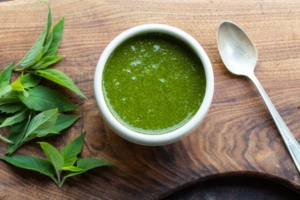
We also do microbiological testing for our products as this is crucial for assessing the safety and efficacy of herbs by identifying microbial contamination. In Europe, herbs must be tested for pathogens, molds, and bacteria to ensure they are safe for consumption. This testing involves analyzing samples to detect any harmful microorganisms that could pose health risks. By adhering to rigorous microbiological testing standards, businesses needing the Fresh Herbs Supplier Europe can prevent contamination-related health issues, ensure product reliability, and meet regulatory requirements. Effective microbiological testing helps in maintaining the integrity and safety of herbal products.
The other domain is the measuring the potency of active compounds in herbs, which is essential for confirming their therapeutic value. In Europe, potency analysis involves assessing the concentration of key active ingredients to ensure that herbs deliver the intended health benefits. This process includes using analytical techniques to verify that products contain the appropriate levels of active compounds. By performing accurate potency analysis, businesses needing the Fresh Herbs Supplier Europe can guarantee that their herbs are effective and consistent across different batches. Potency analysis supports product efficacy, regulatory compliance, and consumer satisfaction, making it a vital aspect of quality control.
Quality Control in Processing
If you are going to process herbs that you import to Europe, adhering to processing standards is crucial for maintaining the integrity and quality of herbs. In Europe, these standards ensure that herbs are processed under controlled conditions that preserve their beneficial properties and prevent contamination. Processing standards cover aspects such as temperature control, equipment sanitation, and procedural consistency. By following these standards, businesses needing the Fresh Herbs Supplier Europe can ensure that their herbs retain their quality throughout the processing stage, enhance product safety, and meet consumer expectations. Maintaining strict adherence to processing standards is key to delivering high-quality herbal products.
The other domain is implementing best practices for handling and storing herbs is essential for preventing degradation and preserving product quality. In Europe, proper handling and storage involve controlling environmental factors such as temperature and humidity, using suitable packaging materials, and maintaining cleanliness. These practices help extend the shelf life of herbs, prevent contamination, and ensure that products remain effective. By adopting these best practices, businesses needing the Fresh Herbs Supplier Europe can enhance the quality and safety of their herbs, reduce waste, and deliver reliable products to consumers. Effective handling and storage are fundamental to maintaining high product standards.
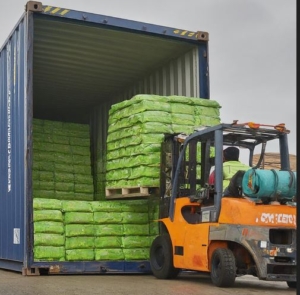
Also check batch consistency to ensure consistency across different batches of processed herbs, which is vital for product reliability and consumer trust. In Europe, batch consistency involves standardizing processing methods, monitoring quality parameters, and conducting regular checks to ensure uniformity. This consistency helps in meeting regulatory standards and provides a dependable product experience for consumers. By focusing on maintaining batch consistency, businesses needing the Fresh Herbs Supplier Europe can enhance product quality, reduce variability, and build a strong reputation. Consistent quality across batches supports consumer satisfaction and helps in achieving long-term success in the herbal products market.
Sourcing and Supply Chain Quality
Supplier Audits: Conducting thorough audits of suppliers is crucial for ensuring they meet established quality standards. In Europe, supplier audits involve evaluating compliance with quality assurance protocols, ethical practices, and regulatory requirements. These audits help verify that suppliers provide high-quality raw materials and adhere to agreed-upon standards. Regular supplier audits support supply chain integrity, enhance product quality, and mitigate risks associated with sourcing. By maintaining a rigorous auditing process, businesses needing the Fresh Herbs Supplier Europe can ensure that their herbal products meet safety and quality expectations consistently.
Raw Material Quality: Evaluating the quality of raw herbs upon receipt and before processing is essential for maintaining high standards. In Europe, this involves conducting rigorous checks to assess the freshness, purity, and overall quality of the raw materials. Proper evaluation of raw herbs helps in identifying any issues before they enter the processing stage, ensuring that only high-quality materials are used. By thoroughly assessing raw material quality, businesses needing the Fresh Herbs Supplier Europe can enhance the final product’s quality and efficacy, meet regulatory requirements, and deliver reliable herbal products to the market.
Traceability Systems: Implementing traceability systems is vital for monitoring the quality of herbs from origin to final product. In Europe, traceability involves tracking every step of the supply chain, from sourcing and processing to distribution, to ensure transparency and accountability. These systems help identify and address quality issues quickly and verify that herbs meet safety and quality standards. Effective traceability supports regulatory compliance, enhances consumer confidence, and ensures that businesses needing the Fresh Herbs Supplier Europe can manage their supply chain efficiently. Traceability systems are essential for maintaining high-quality herbal products.
Organic and Sustainable Practices
Meeting organic certification requirements is essential for guaranteeing the quality of herbs and catering to the growing demand for natural products in Europe. Organic certification involves adhering to strict standards for cultivation, processing, and handling without synthetic pesticides or GMOs. This certification demonstrates a commitment to high-quality, environmentally friendly practices and appeals to health-conscious consumers. By obtaining organic certification, businesses needing the Fresh Herbs Supplier Europe can enhance their product offerings, meet regulatory standards, and build consumer trust in the organic attributes of their herbal products.
Partner with suppliers like Mulberry Growers who use sustainable farming practices to enhance herb quality while minimizing environmental impact. In Europe, sustainable farming includes techniques such as crop rotation, reduced chemical inputs, and efficient water use. These practices improve soil health, promote biodiversity, and ensure that herbs are grown in an eco-friendly manner. By emphasizing sustainability, businesses needing the Fresh Herbs Supplier Europe can align with consumer preferences for environmentally responsible products, meet regulatory requirements, and contribute positively to the ecosystem. Sustainable farming practices are essential for producing high-quality and environmentally friendly herbs.
The other aspect is using eco-friendly packaging that preserves the quality of herbs, which is increasingly important in Europe. Eco-friendly packaging solutions, such as biodegradable materials or recyclable containers, help reduce environmental impact while maintaining product freshness and integrity. By choosing sustainable packaging options, businesses needing the Fresh Herbs Supplier Europe can demonstrate their commitment to environmental responsibility and appeal to consumers who prioritize eco-friendly practices. This approach not only supports product quality but also aligns with growing consumer expectations for environmentally conscious products, enhancing brand reputation and sustainability efforts.
Consumer Perceptions and Expectations
Consumer Feedback: Gathering consumer feedback is vital for driving improvements in herb quality. In Europe, businesses needing the Fresh Herbs Supplier Europe should actively seek input from customers through surveys, reviews, and focus groups to understand their perceptions and expectations regarding herb products. This feedback provides valuable insights into areas that may need enhancement, such as flavor, potency, or packaging. By analyzing consumer feedback, businesses needing the Fresh Herbs Supplier Europe can make informed decisions to address issues, refine their offerings, and better meet consumer needs. This approach helps in aligning products with customer expectations and improving overall satisfaction.
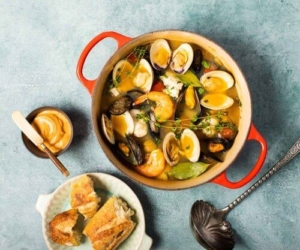
Market Trends: Understanding market trends related to herb quality and consumer preferences is crucial for staying competitive in Europe. This involves tracking evolving consumer behaviors, such as increasing demand for organic or sustainably sourced herbs, and staying informed about industry innovations. By analyzing market trends, businesses needing the Fresh Herbs Supplier Europe can adjust their product lines, marketing strategies, and quality standards to align with consumer expectations. Staying attuned to these trends helps businesses needing the Fresh Herbs Supplier Europe anticipate market shifts, respond to changing preferences, and position themselves effectively in the evolving herbal products landscape.
Educational Outreach: Educating consumers about what constitutes high-quality herbs and how to identify them is essential for building trust and transparency. In Europe, businesses needing the Fresh Herbs Supplier Europe should provide clear, accessible information about the characteristics of high-quality herbs, including factors such as purity, potency, and sourcing practices. This outreach can include informative content on websites, packaging details, and educational campaigns. By helping consumers make informed choices, businesses needing the Fresh Herbs Supplier Europe can enhance their credibility, differentiate their products, and foster a better understanding of the value and quality of their herbal offerings.
Quality Improvement Initiatives
Continuous Improvement: Implementing continuous improvement practices is key to enhancing herb quality. In Europe, businesses needing the Fresh Herbs Supplier Europe should adopt methodologies like Six Sigma or Lean to systematically identify and address quality issues, streamline processes, and enhance product consistency. Continuous improvement involves regularly reviewing performance metrics, soliciting feedback, and making incremental changes to optimize quality. By embracing a culture of ongoing improvement, businesses needing the Fresh Herbs Supplier Europe can elevate their herb products, respond effectively to challenges, and maintain a competitive edge in the market.
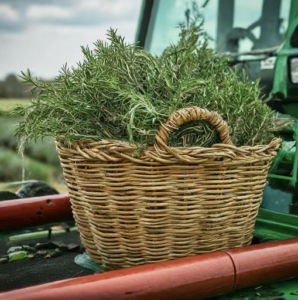
Innovation in Quality: Exploring new technologies and methods to improve herb quality is essential for staying ahead in the European market. Innovations such as advanced extraction techniques, precision agriculture, and quality control technologies can significantly enhance the effectiveness and consistency of herbal products. Investing in research and development to incorporate these innovations helps businesses needing the Fresh Herbs Supplier Europe improve product quality, meet evolving consumer demands, and address emerging industry standards. Embracing innovation allows companies to offer superior products and maintain leadership in the competitive herbal products sector.
Benchmarking: Comparing quality metrics with industry benchmarks is crucial for identifying areas for improvement. In Europe, businesses needing the Fresh Herbs Supplier Europe should regularly assess their herb quality against established industry standards and competitors to gauge performance and identify gaps. Benchmarking involves evaluating various quality indicators such as potency, purity, and consumer satisfaction. By understanding how their products measure up against industry leaders, businesses needing the Fresh Herbs Supplier Europe can implement targeted improvements, enhance their quality control processes, and achieve higher standards of excellence in the herbal products market.
Regulatory Compliance and Standards
EU Regulations: Adhering to EU regulations on herb quality is essential for market access and compliance. These regulations set specific standards for herbal products, including requirements for safety, efficacy, and labeling. Businesses needing the Fresh Herbs Supplier Europe operating in Europe must ensure their herb products meet these regulatory standards to avoid legal issues and maintain consumer trust. Compliance involves staying updated on regulatory changes, implementing necessary quality control measures, and ensuring that all products meet the stringent requirements set by EU authorities for herbal products.
Quality Standards: Complying with international quality standards and guidelines for herb products is vital for ensuring product reliability and consumer safety. In Europe, businesses needing the Fresh Herbs Supplier Europe should adhere to standards such as those set by the International Organization for Standardization (ISO) and other relevant bodies. These standards cover aspects such as manufacturing practices, testing procedures, and quality management systems. By following these guidelines, businesses needing the Fresh Herbs Supplier Europe can enhance their product quality, build credibility, and meet the expectations of both regulators and consumers in the international market.
Labeling Requirements: Ensuring accurate labeling that reflects the quality and origin of herbs is a key aspect of regulatory compliance in Europe. Labeling requirements include providing clear information about the herb’s ingredients, origin, and quality attributes, as well as adhering to claims and certifications. Accurate labeling not only helps in meeting legal obligations but also builds consumer trust by providing transparency. By ensuring that labels are informative and compliant with regulations, businesses needing the Fresh Herbs Supplier Europe can enhance product credibility and facilitate informed consumer choices.
Herb Authenticity
You can verify the authenticity of herb species to prevent fraud and ensue quality. In Europe, authenticity testing involves using methods such as DNA analysis or chromatography to confirm that herbs are genuine and match their claimed species. This testing helps prevent the substitution of inferior or counterfeit herbs and ensures that consumers receive products that meet their expectations. By implementing robust authenticity testing procedures, businesses needing the Fresh Herbs Supplier Europe can protect their reputation, ensure product integrity, and maintain consumer confidence in their herbal offerings.
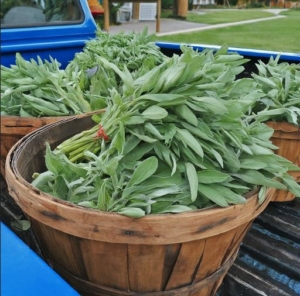
Implementing measures to prevent the adulteration of herbs with inferior or synthetic substances is also essential for maintaining product quality. In Europe, businesses needing the Fresh Herbs Supplier Europe should use stringent quality control practices and analytical testing to detect and prevent adulteration. This includes monitoring raw materials, conducting regular inspections, and verifying the purity of final products. By actively preventing adulteration, businesses needing the Fresh Herbs Supplier Europe can ensure that their herbs meet high-quality standards, protect consumer health, and comply with regulatory requirements, thereby enhancing their product reliability and market reputation.
Certification is also good to assure consumers of the authenticity and quality of herbs, which is important for building trust and credibility. In Europe, certifications from reputable organizations can confirm that herbs meet specific quality and authenticity standards. These certifications involve rigorous testing and verification processes to ensure that products are genuine and of high quality. By offering certification of authenticity, businesses needing the Fresh Herbs Supplier Europe can enhance consumer confidence, differentiate their products in the market, and demonstrate their commitment to maintaining high standards.
Training and Development
Staff Training: Training staff in quality control procedures and best practices for herb handling is crucial for maintaining high product standards. In Europe, businesses needing the Fresh Herbs Supplier Europe should provide comprehensive training programs that cover quality assessment techniques, safety protocols, and proper handling procedures. Well-trained staff can effectively implement quality control measures, identify potential issues, and ensure that herbs are processed and handled according to established standards. Investing in staff training enhances overall product quality and supports compliance with regulatory requirements.
Skill Development: Developing skills related to quality assessment and improvement in herb production is essential for ensuring high-quality products. In Europe, businesses needing the Fresh Herbs Supplier Europe should focus on providing ongoing education and skill development opportunities for their employees. This includes training in advanced analytical techniques, quality management practices, and emerging industry trends. By fostering a culture of continuous learning and skill enhancement, businesses needing the Fresh Herbs Supplier Europe can improve their quality control processes, adapt to new challenges, and maintain a competitive edge in the herbal products market.
Knowledge Sharing: Encouraging knowledge sharing and best practice adoption within the industry helps elevate overall quality standards. In Europe, businesses needing the Fresh Herbs Supplier Europe should participate in industry forums, conferences, and collaborative initiatives to exchange insights and strategies related to herb quality. By sharing knowledge and learning from peers, businesses needing the Fresh Herbs Supplier Europe can implement effective practices, address common challenges, and stay updated on industry advancements. Knowledge sharing fosters innovation, improves quality control, and contributes to the overall advancement of the herbal products sector.
Contact Us – We do Herb Export to Europe
We supply these herbs: oregano, rosemary, tarragon, basil, sage, thyme, and chives to Europe in bulk.
Welcome! Share your requests or make inquiries here:
- Our Email: commercial@mulberrygrowers.com
- Call/WhatsApp: +254 716 150 111 OR +254 748 897 749
- Website: www.mulberrygrowers.com